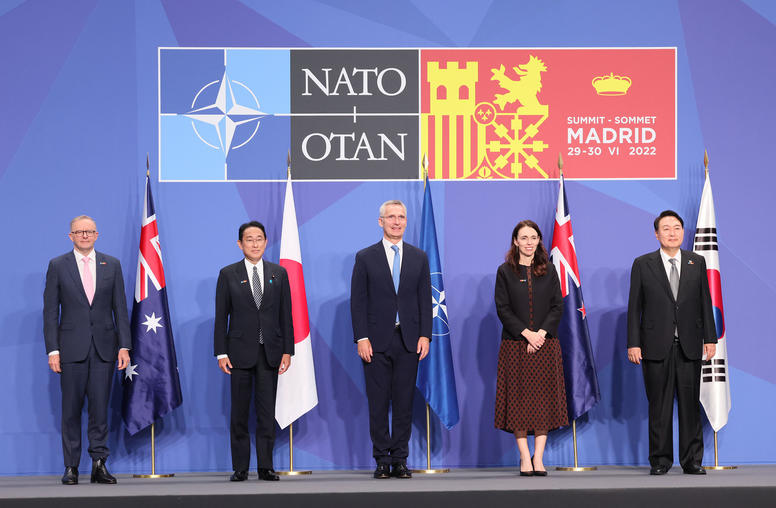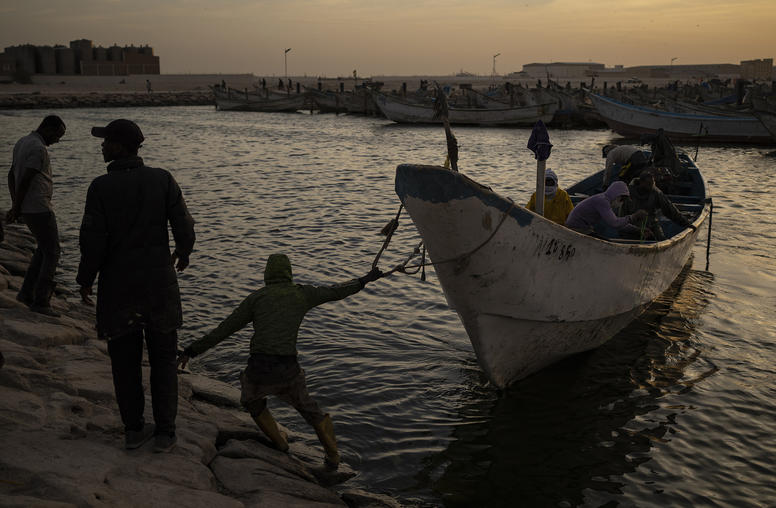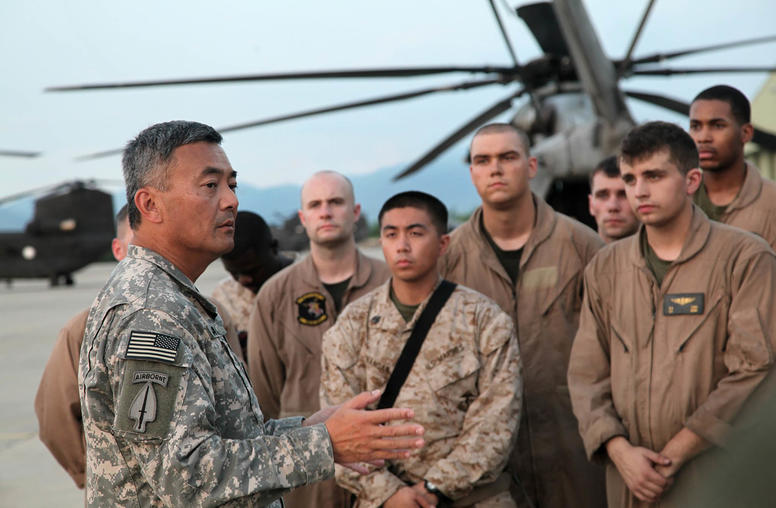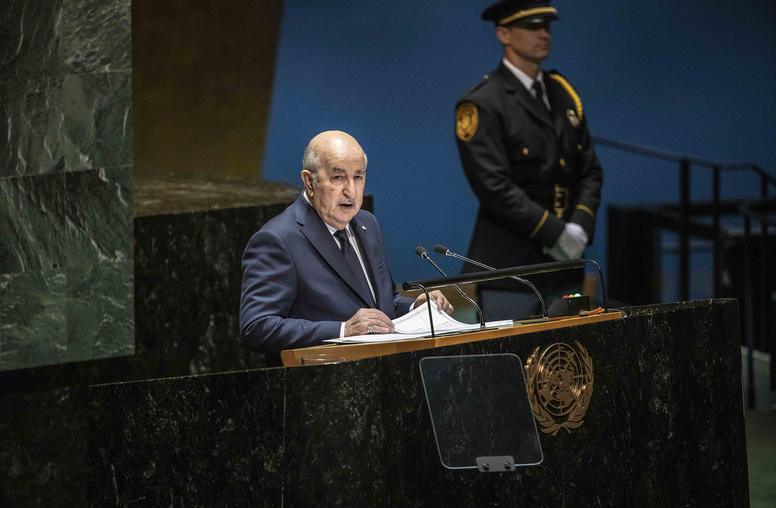To Better Halt Wars, Does America Need a ‘Crisis Command’?
Retired general and peace mediator Anthony Zinni urges some creative thinking on the response to crises.
A string of violent crises since the 1990s—from Somalia to Iraq to others—has underscored America’s need to coordinate better among military forces, relief and development organizations, diplomats and other responders, retired Marine Corps General Anthony Zinni said this week. The United States should consider creating a standing “interagency command” for such crises, Zinni told listeners at USIP.
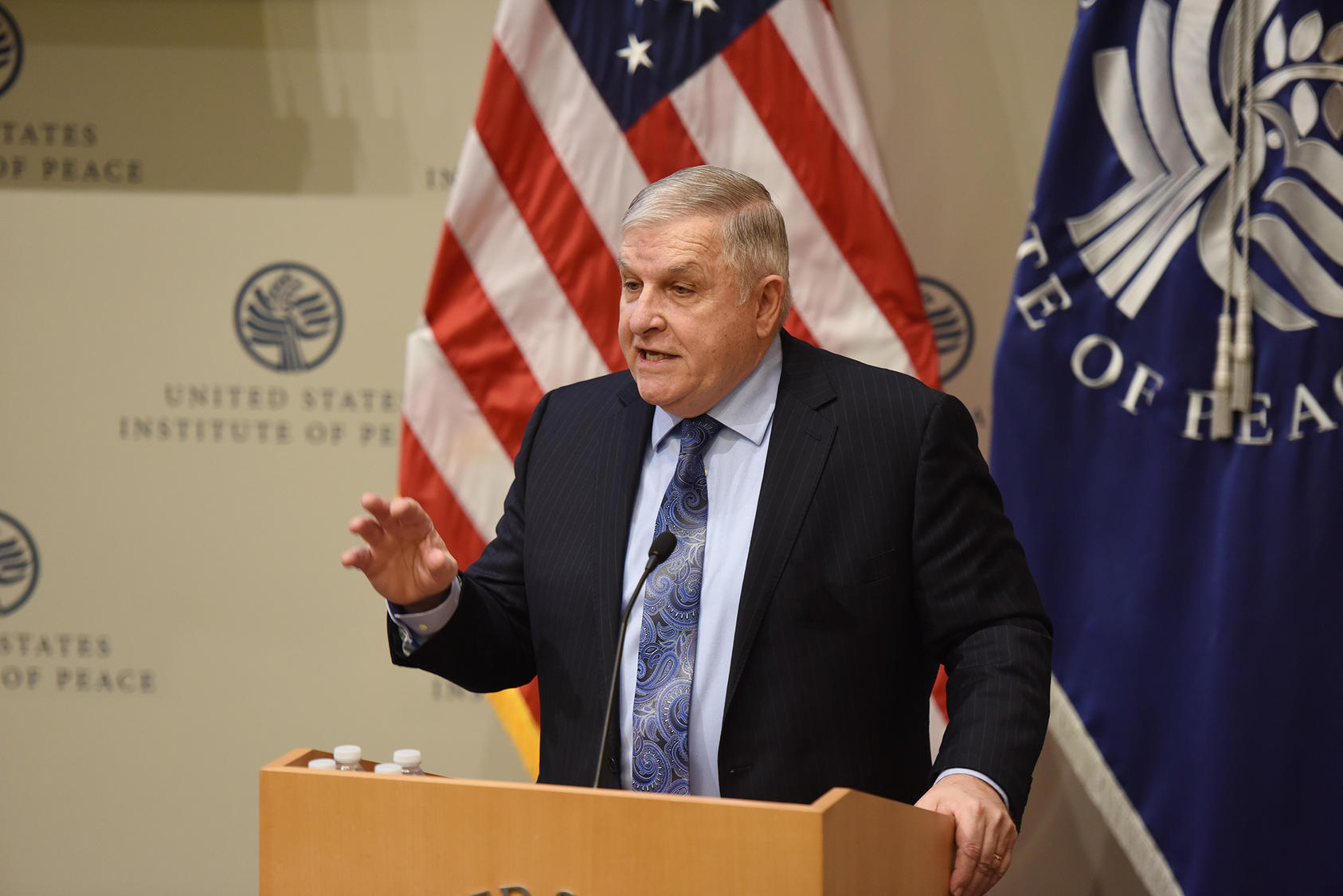
Zinni, who headed the U.S. Central Command from 1997 to 2000 and later served as the U.S. special envoy for Middle East peace, spoke to PeaceCon 2018, a gathering of the peacebuilding community. USIP and the Alliance for Peacebuilding convene the conference each year among conflict resolution specialists, diplomats, scholars, military strategists and others. Many such conferences, Zinni noted, repeatedly have declared America’s need for better coordination of its governmental and non-governmental responses to crises from Afghanistan to Syria to Libya and elsewhere.
A U.S. Interagency ‘Crisis Command’?
“So, I’m going to give you a proposed solution,” Zinni told the group. “I’m going to say we need to create an interagency command” to manage America’s response to complex or “hybrid” security crises.
“I hate to use that word, ‘command,’ because I don’t mean it to be military,” he said. In his conception, “this organization would be interagency. It would have a State Department component, would have a USAID component. It would be able to interact with NGOs [non-government organizations]. It might even have a representation from NGO organizations.” Its coordinating role would be analogous, he suggested to “our regional combatant commands, that have components—Army, Navy Air Force, Marine Corps.”
Such a complex-crisis command would conduct “organization, training, coordination [and] planning” among U.S. crisis responders and would be “a deployable entity,” Zinni said. So, if U.S. forces are required to deploy, as a decade ago “into an Iraq or an Afghanistan, you’re not … scratching your head in Baghdad and Kabul and saying, ‘Now what’?
“This organization would have the ‘Now what?’ answer,” Zinni said. “It’s not going to be a pickup team like CPA [the Coalition Provisional Authority set up by the U.S. government in Iraq following its 2003 invasion] or ORHA [the Office for Reconstruction and Humanitarian Assistance], or whatever we throw together at the last minute, with people unfamiliar with the situation.”
A Lesson from Somalia
In the absence of a broad, standing, interagency capacity to manage complex crises, Zinni noted that the U.S. military is often sucked deep into the gap. He recalled leading U.S. Marines into the chaotic, collapsed state of Somalia in 1992. “We were told that we were just going there for about two weeks” to suppress attacks on humanitarian operations by warlord-led militias, he said.
But no plan or capacity existed to build on the Marines’ effort with a broader stabilization effort. “I realized this about three days into the operation,” Zinni said, when a group of Somali leaders “wanted to see me, … and they were putting their finger in my face and saying, ‘When are you going to start the jobs program here?’”
The Marines’ mission expanded into “running the police force” and trying to help diplomats re-establish the government, Zinni said. His own turn to a career in conflict resolution began on that mission under the mentorship of Ambassador Robert Oakley, he said. That U.S. and international effort to stabilize Somalia ended in 1993 following the costly Battle of Mogadishu between U.S. and international troops, and Somali militia. The mission was recounted by Oakley and others in a USIP-published history, Somalia and Operation Restore Hope.
To Build Peace, Do the Research
Zinni has specialized in peace mediation projects since retiring from the military. “I finally did nine of these things, and I went off and got a master’s degree in mediation and dispute resolution and negotiations,” he said. His work has included heading U.S. peace efforts in the Middle East, and missions to Indonesia, African nations and the Philippines.
A critical need in any crisis, Zinni said, is research on the precise contours of the conflict. “The excellent NGOs we have out there … provide some of that research,” he said, as does the U.S. Institute of Peace, with which Zinni worked in his Philippines mission. “When we did mediation work in the Philippines, the background information, the research that we came here to get … was exceptional.”
Zinni urged the PeaceCon participants, “Don’t walk away from the conference without an idea” about how to achieve the better coordination that many conferences and analyses have agreed must be achieved. “How do we structure this thing? How are we going to fund it? Who should? How do we interact with others, from a U.S. perspective?”
“We have the parts,” Zinni said. “We’ve never glued it together.”
